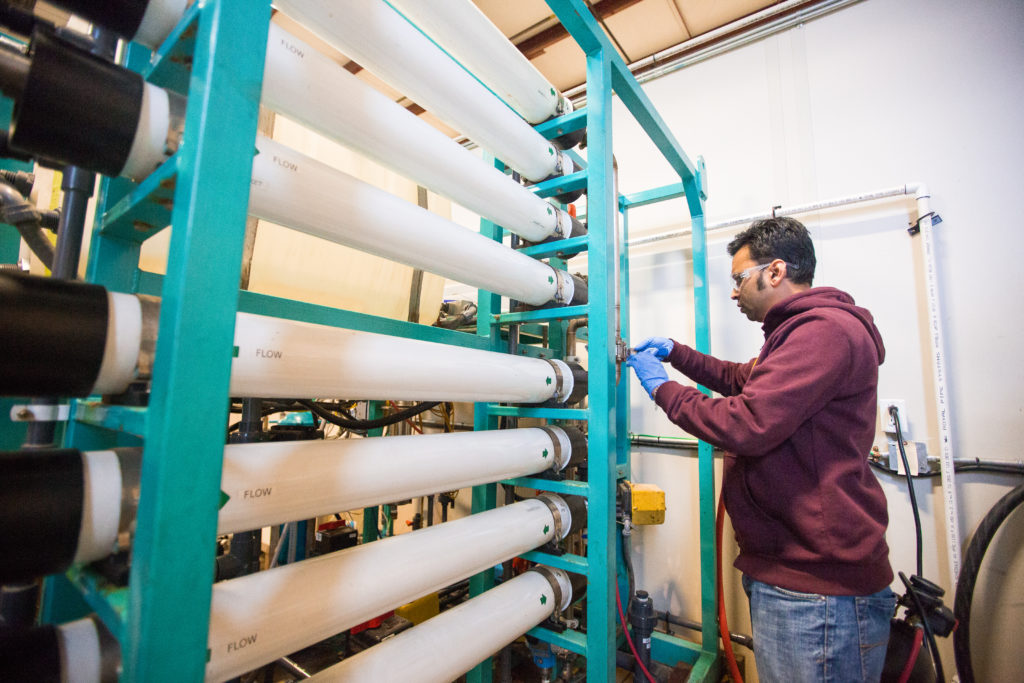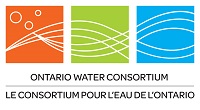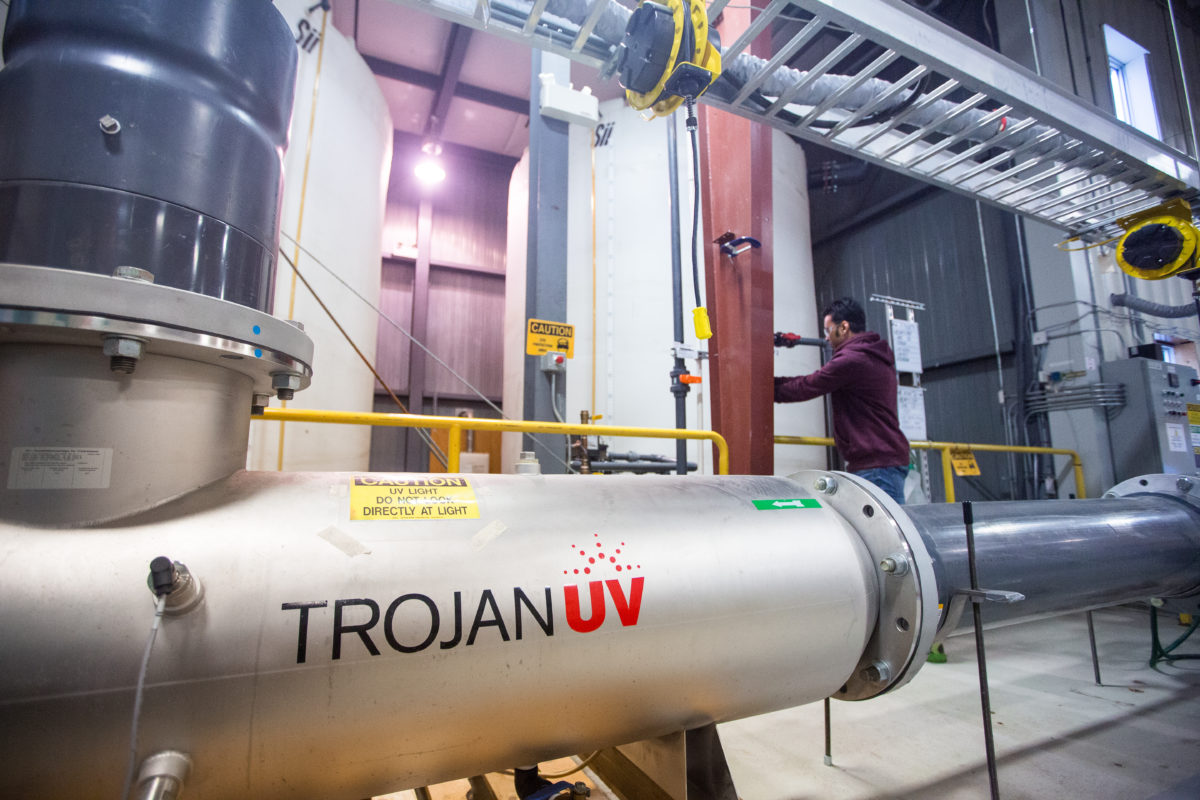Trojan Technologies is a recognized trailblazer of Ontario’s water tech frontier, known globally for its energy-efficient, advanced ultraviolet (UV) disinfection systems. With some 10,000 municipal facilities in more than 100 countries using its applications, Trojan has the largest installed base of municipal UV systems in the world, making it one of the province’s most stunning success stories.
The company shows no signs of slowing down. In addition to supporting current customers with UV products and services, Trojan is also devoting resources to longer-term projects that require new research and development, not to mention boldness.
Using this strategy, Trojan applied to Southern Ontario Water Consortium’s Advancing Water Technologies (AWT) program. AWT offers dedicated and intensive support to help Ontario companies leverage world-class research facilities and academic expertise to develop and demonstrate water technologies for successful introduction to global markets.
Trojan is undertaking two concurrent AWT projects. The first is focused on water reuse, the second on biosolids and wastewater quality management and control.
Speaking with Dr. Ted Mao, PEng, Vice President of Research at Trojan, it’s apparent that working with the SOWC has taken the company to new heights.
“For many years now, we’ve nurtured an ongoing relationship through a number of dedicated projects,” Mao says. “Since the SOWC’s founding, we have been quite fortunate to benefit from the broader connections and funding it has enabled.”
Pathogen and micropollutant control for water reuse
As a result of water scarcity, in terms of both water quality and quantity, reuse is a growing global trend in the water industry. But pathogens and micropollutants are significant concerns in reuse applications where robust and eco-efficient technologies are urgently needed.

Dr. Pankaj Chowdhury, AWT Postdoctoral Research Fellow, testing water quality from the pilot-scale potable water reuse treatment train. Copyright: SOWC
Using advanced UV disinfection and oxidation, Trojan aims to destroy micropollutants such as industrial byproducts, pharmaceuticals and pesticides, from municipal wastewater effluent that is bein g treated for reuse including potable reuse. To help address the public concerns that potable reuse of wastewater is high risk, Trojan is teaming up with Western University professor Dr. Ajay Ray in a 2 year long AWT project to demonstrate high levels of treatment performance and validate the technology’s effectiveness to alleviate these public concerns. While this technology will be based on UV advanced oxidation processes (AOP), proven technology for the removal of trace organic contaminants in drinking water treatment, a higher level of performance validation is required given the public health risks associated with potable reuse of municipal wastewater treatment plant effluent.
Additionally, methods for the inactivation of pathogenic microorganisms from municipal wastewater for non-potable reuse applications such as irrigation and industrial reuse are also being developed. This disinfection solution will use optimized disinfectants to enhance disinfection performance and minimize operating costs.
Dr. Siva Sarathy, PEng, a Senior Scientist at Trojan, says he is thrilled to conduct the project in the London Wastewater Facility, a unique full-scale demonstration facility built at London’s Greenway Pollution Control Centre and to work with city staff. “The City of London’s operators and other plant staff have provided excellent support for our studies and research, surpassing all expectations.” The facility, a partnership among SOWC, Western University and the City of London, creates unprecedented capacity for compliance testing and demonstration of technologies, enabling access to full-scale municipal flows from 1000 m3/day up to 4,500 m3/day indoors.
Integrated treatment process for wastewater quality management
On the wastewater side, Trojan is working with Dr. Elsayed Elbeshbishy a professor from Ryerson University to advance a unique, whole system approach to wastewater treatment that will optimize plant performance by focusing on biosolids and wastewater quality management and control.The goal is to model, operate and optimize the whole system, looking to reduce overall energy and GHG emissions from the whole system while recovering value from the waste stream. The objective is to optimize the value recovery through reducing the generation of biosolids while optimizing the recoverable natural constituents for enhanced processing.
Dr. Domenico Santoro, PEng, Trojan’s Research Lead on the second AWT project, believes that this SOWC funding will accelerate research and development for the biosolids project.
“The AWT program allows us to work with world leaders in the fields of water quality modelling, collection systems, and biosolids management, international groups and Dr. Peter Vanrolleghem – NSERC Research Chair on Water Quality Modelling from Université Laval,” Santoro says.
For Santoro, the funding allows Trojan to branch out beyond its regular R&D stream and diversify its portfolio with projects that could yield long-term breakthroughs, which in turn will contribute to the company’s growth and success in the years to come.
“Especially with biosolids and collection systems, funding these initiatives internally always means we are competing against our short-term commercial objectives,” Santoro says. “The AWT funding is valuable because without it our ability to aggressively pursue longer-term initiatives is reduced.”
With funding provided under SOWC’s Advancing Water Technologies program (funded by the Federal Economic Development Agency for Southern Ontario) Trojan Technologies is advancing leading edge technological innovation in wastewater reuse and wastewater resource recovery that will significantly enhance the company’s global competitiveness while strengthening local industry-academic partnerships and expertise and creating social and economic benefits, right here in Ontario.


